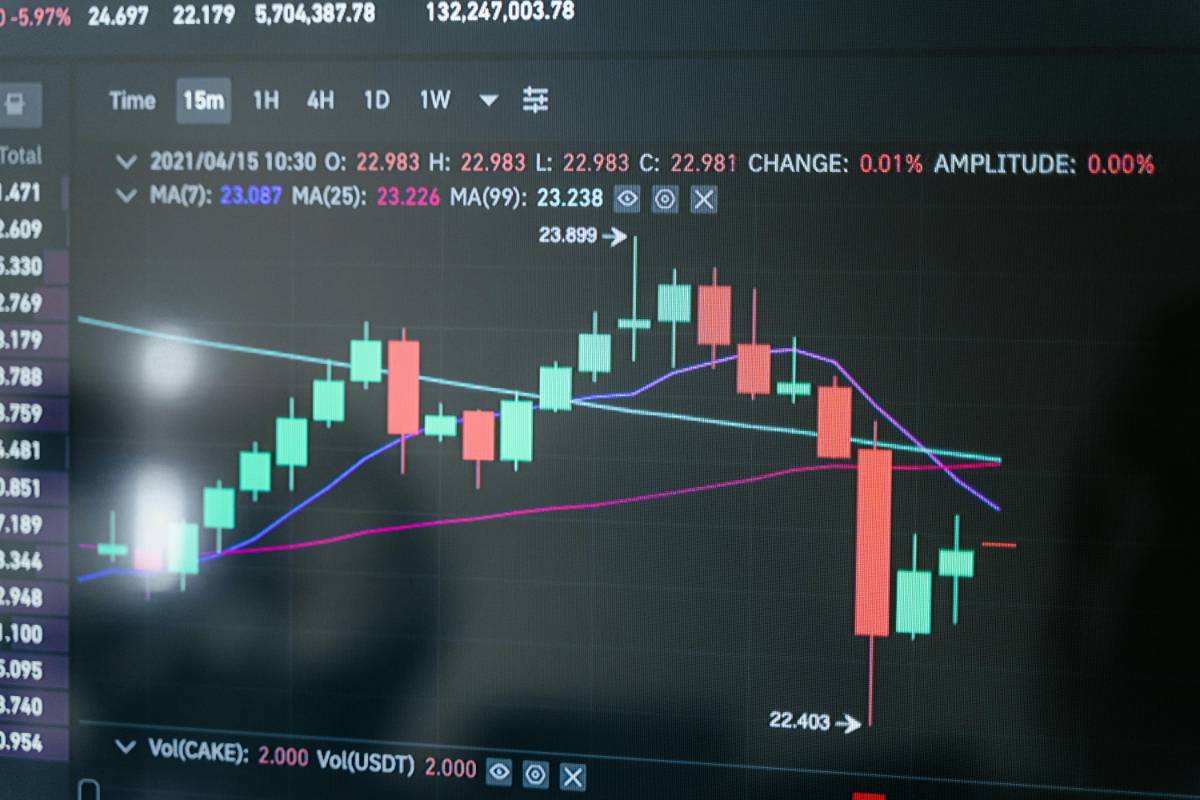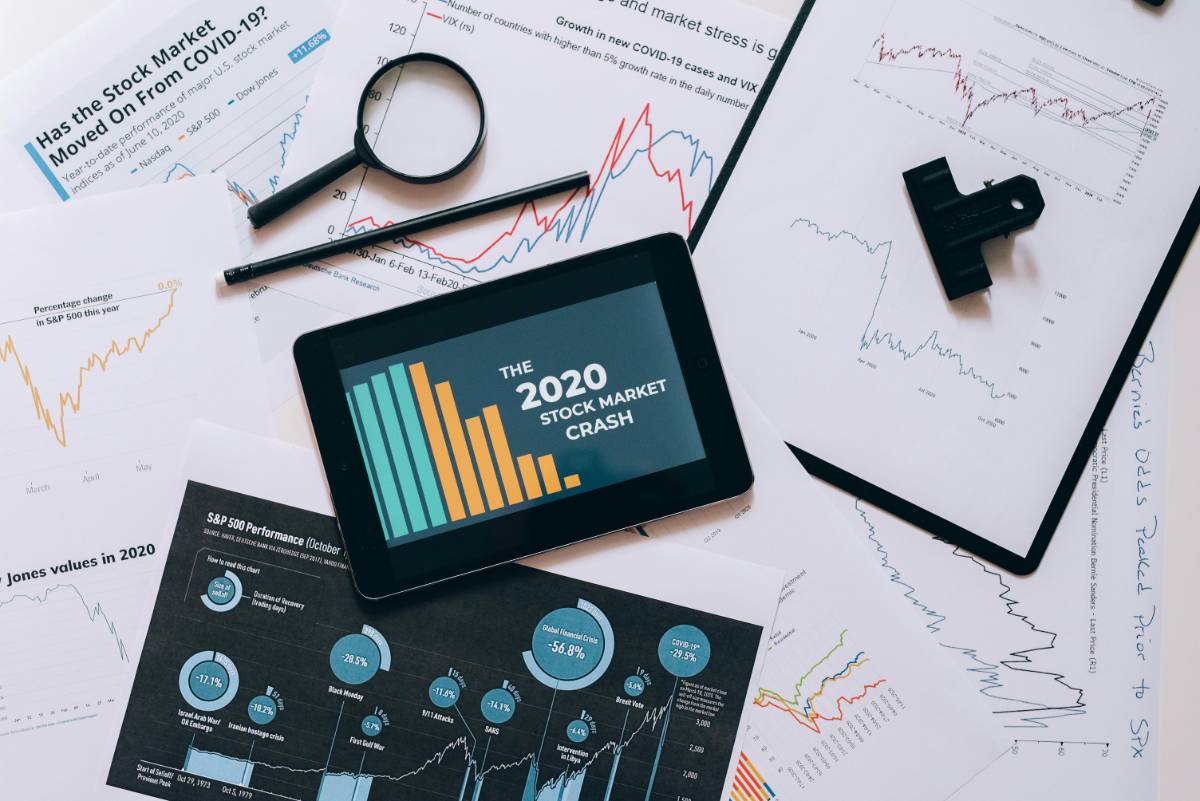
Algorithmic Trading: How AI Is Changing the Stock Market
 By Samantha Lee
By Samantha LeeAlgorithmic trading, also known as algo trading, leverages AI and machine learning to execute trades with high speed and precision. This technology is reshaping the financial markets by minimizing human error and maximizing efficiency.
The Rise of Algorithmic Trading
Algorithmic trading has grown significantly, accounting for a large portion of market transactions. It enables traders to analyze vast amounts of data in real-time and execute orders faster than traditional methods.
Advantages of AI in Trading
1. Speed and Efficiency: AI-driven trading systems can process information and execute trades in milliseconds.
2. Reduced Emotional Bias: Automated systems eliminate human emotions, ensuring trades are based on logic and data.
3. Enhanced Market Analysis: AI algorithms analyze market trends, news, and patterns to identify profitable opportunities.
4. Backtesting Capabilities: Traders can test strategies on historical data to refine their approaches before implementing them in live markets.
Challenges and Risks

1. Market Volatility: While AI can capitalize on rapid movements, it can also amplify market fluctuations.
2. Technical Failures: System glitches or coding errors can lead to unintended trades and losses.
3. Regulatory Concerns: As AI plays a larger role in trading, regulators are working to ensure fairness and prevent market manipulation.
The Future of AI in Trading
You might also like
1. How Interest Rates Impact ETF and Mutual Fund Performance2. Understanding and Managing Risk in Your Investment Portfolio3. The Basics of Passive Income: How to Make Money Work for You4. Understanding the U.S. Financial System: A Complete Guide1. Increased Adoption: More institutions and retail traders are integrating AI into their strategies.
2. Improved Algorithms: Machine learning advancements will enhance predictive accuracy and efficiency.

3. Ethical Considerations: As AI takes over more decision-making, transparency and accountability will become key concerns.
Conclusion
Algorithmic trading is revolutionizing the stock market by improving speed, efficiency, and accuracy. While it presents challenges, the benefits of AI-driven trading strategies are shaping the future of investing.
About the author
 By Samantha Lee
By Samantha LeeSamantha Lee is a seasoned finance writer with over 8 years of experience helping millennials and Gen Z take control of their money. With a background in economics and a passion for demystifying complex financial concepts, Ananya shares actionable tips on budgeting, investing, and building long-term wealth. Her mission is to make financial literacy accessible, relatable, and empowering — no jargon, just smart money moves.
More like this

Stock Buybacks: How They Influence Share Prices
Stock buybacks have become a common strategy for companies looking to boost share prices and reward investors. Understanding their impact can help investors make informed decisions.

Meme Stocks: Are They Making a Comeback?
Meme stocks took the financial world by storm in recent years, driven by online communities and retail investors. As market conditions shift, many wonder if these stocks are making a comeback.

Dividend Stocks vs. Growth Stocks: Where’s the Best Opportunity?
Investors often face a crucial decision when building their portfolios: Should they invest in dividend stocks for stability or growth stocks for higher returns? Understanding the differences can help in making the right choice based on financial goals and risk tolerance.

How Geopolitical Events Affect U.S. Stock Performance
Geopolitical events have a significant impact on the U.S. stock market, influencing investor sentiment, market volatility, and sector performance. Understanding these effects can help investors navigate uncertainty and make informed decisions.

AI and Automation: The Next Big Disruptors in the Stock Market
Artificial intelligence and automation are transforming industries, and the stock market is no exception. These technologies are reshaping investment strategies, trading mechanisms, and market dynamics at an unprecedented pace.

S&P 500 vs. Nasdaq: Where Should You Invest?
Investors often compare the S&P 500 and the Nasdaq when deciding where to allocate their funds. Understanding the differences between these indices can help you make a strategic investment choice based on your risk tolerance and financial goals.

Why Tech Stocks Are Leading the Market Again
Tech stocks are once again at the forefront of the market, driven by innovation, strong earnings, and investor optimism. As companies in the sector continue to expand their influence, understanding the reasons behind this surge can help investors make informed decisions.

The Impact of Federal Reserve Policies on the Stock Market
Federal Reserve policies play a crucial role in shaping the stock market. Interest rate decisions, quantitative easing, and regulatory measures directly impact investor sentiment and market performance. Understanding these effects can help traders and long-term investors navigate the evolving financial landscape.

Top Performing Stocks on Wall Street This Quarter
The latest quarter on Wall Street has seen significant movements, with some stocks outperforming expectations while others struggled to keep up. Understanding these trends can help investors make informed decisions moving forward.

U.S. Stock Market Outlook: What to Expect in 2025
As we move into 2025, investors are looking for insights into the U.S. stock market's potential trajectory. Market trends, economic policies, and global events will all play crucial roles in shaping investment opportunities.





